DAHUA, GUANGXI (XINHUA) – Meng Xuantai unknowingly made news headlines nearly 11 years ago during his hour-long trek to school in the craggy mountains of Dahua, south China’s Guangxi Zhuang Autonomous Region.
In a photo taken by a Xinhua photographer in September 2012, the eight-year-old was struggling to climb up a cliff, with one hand pressing against a rock to keep his balance and the other holding a plastic bag containing everything he needed for school.
Meng was put in the middle of a group, sandwiched between two older children expected to give him a hand in case of danger. From their home village Nongyong, they had to get to the other side of the mountain to the nearest school. The trek was long and dangerous, so they only went home on the weekends.
Guangxi is one of the areas facing the worst level of stony desertification, and Dahua county, predominantly inhabited by the Yao ethnic group, is located in Karst landscapes covered with rocks. Meng’s home village was once identified as uninhabitable by the Food and Agriculture Organization of the United Nations due to its extremely tough natural conditions.
In the photo, Meng’s brother Meng Xuanren, 11 at the time, was carrying a bedsheet made of bamboo fibre.
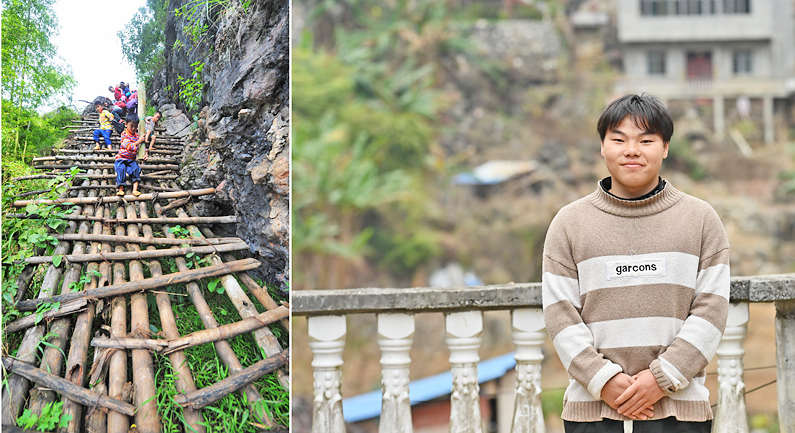
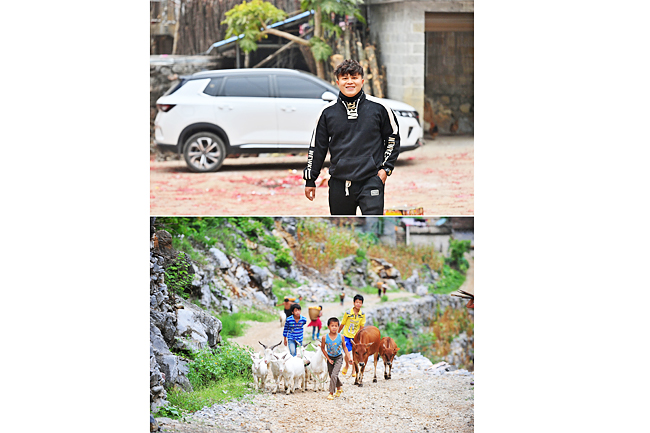
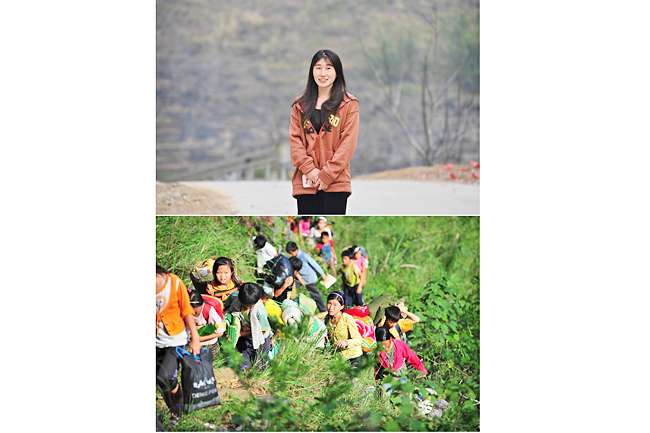
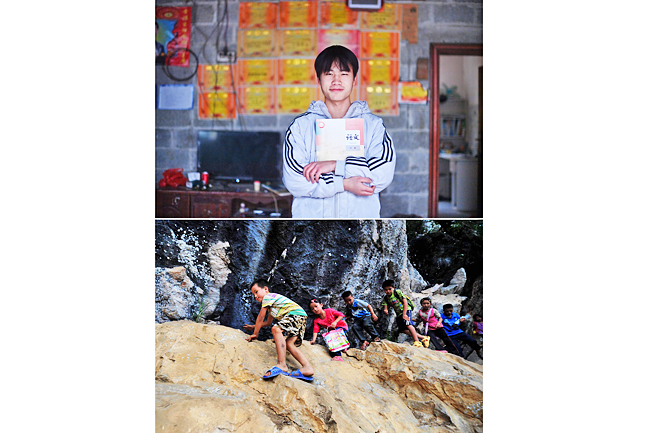
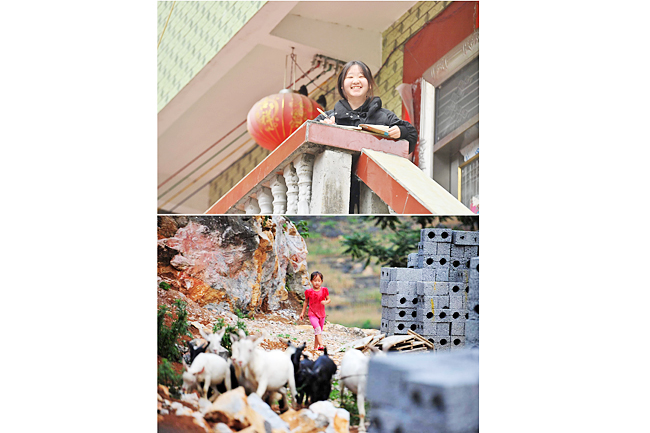
The two boys had different dreams. Meng Xuantai was eager to grow up, earn his living “somewhere outside the mountains” and support their parents, whereas his brother dreamed of going to university and “changing his fate with knowledge”.
One of their sweetest childhood memories was standing at the door and waiting for their father to come home for the Chinese New Year, coveting the candies and gifts he would bring them from the faraway city where he worked.
Their father Meng Guisu, who did not even finish primary school, joined the majority of villagers who worked far away from home. But he insisted his own sons should receive a better education and earn a decent living. For many parents, schooling was worth the hardship along the children’s long, dangerous trek.
Some children were better protected than others. Meng Keyou started school at nine, two years later than his peers, because his parents thought it was too dangerous for a seven year old to climb up and down a cliff, where a fall could be fatal.
Meng Qiuyan, 11 at the time, remembers an older girl who fell from the cliff on her way to school. “Fortunately she was caught by rocks and trees. A teacher rushed to her rescue, but she has a long scar on her forehead until today.”
Most families in the village have the same family name, Meng, though they are not all related.
Xinhua photographer Huang Xiaobang followed these children on their way to school for the first time in 2012 and kept updating his photo archive over the years. Gradually he noticed the changes: the children grew into adults and blacktop roads replaced the rocky, perilous trail their little feet once trod.
“Eleven years seem long,” said Huang. “I recorded the mountain life with my camera lens and categorised the photos. The kids went to school, came home, herded the sheep, did their laundry, helped in the kitchen and out in the field, and grew up.”
He caught snapshots of their tough life and every single change for the better: expanded road networks, more vehicles, as well as free nutritious meals and new dormitory buildings for schoolchildren. “Last but not least, the young adults I know from 11 years ago.” Most of the former schoolchildren in Huang’s photos are now aged from 18- to 24 years old. Some are in their final year at high school and preparing to enter university this fall, some are already in university and the others have taken up jobs as teachers, doctors,or workers.
The Meng brothers have both fulfilled their dreams: Xuanren is studying at Liaoning Provincial College of Communications in northeast China, whereas his younger brother Xuantai has finished technical school and secured a job in the neighboring Guangdong Province, repairing vehicles.
Huang took another photo for the brothers when they came home for the Chinese New Year in January, in a tunnel that leads to the other side of the mountain. For the younger children in the village, a walk to school along the new road takes 20 minutes. A car or motorbike ride halves the travel time.
Qiuyan, who always regrets the scar on the face of her friend who slipped off the cliff, is now studying at a university of medical sciences in Nanning, the regional capital.
China declared a complete victory in its fight against poverty in February 2021. The country has lifted 770 million rural residents out of poverty since the beginning of the reform and opening up over 40 years ago, accounting for over 70 per cent of the global total, according to the World Bank’s international poverty line.





